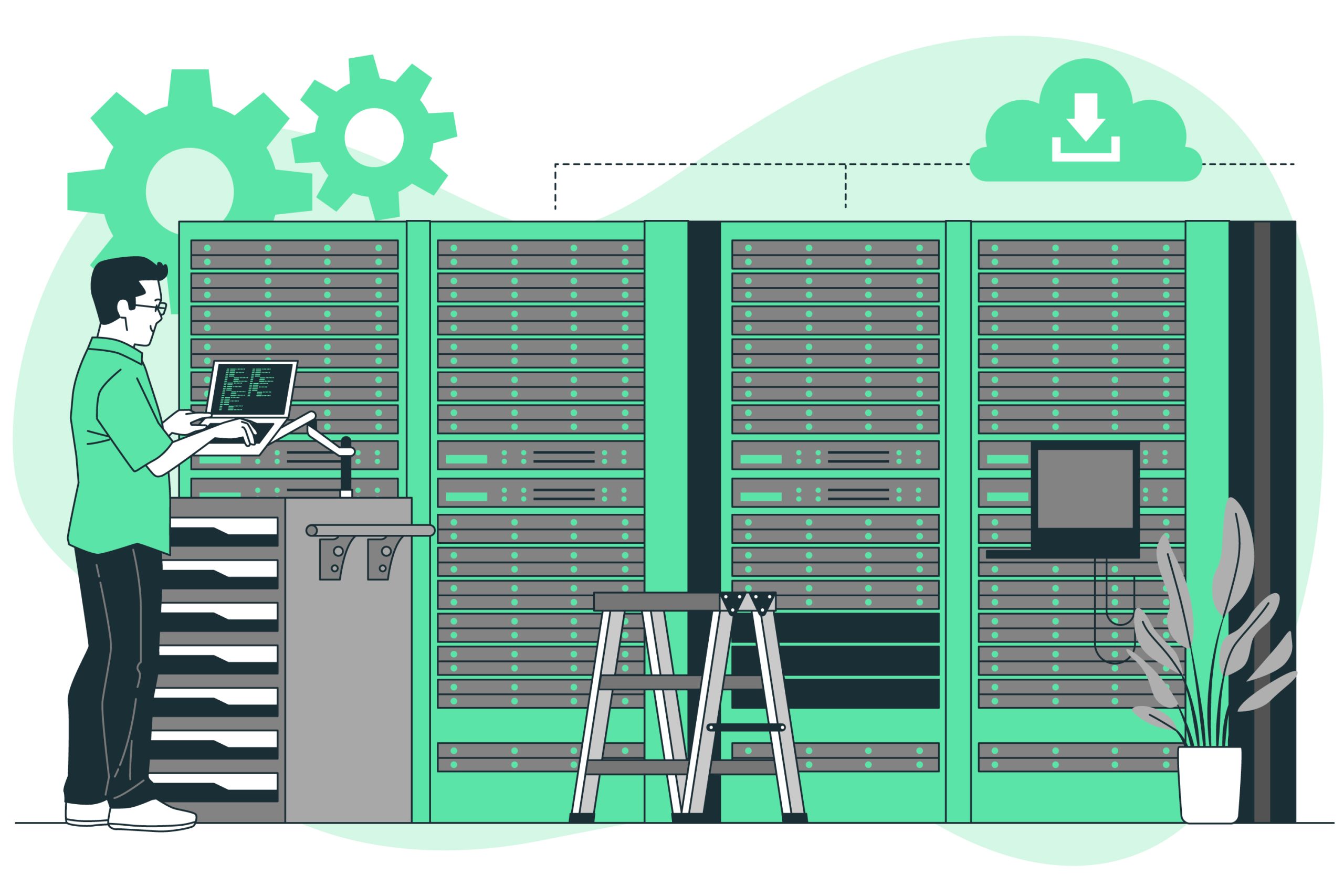Owning global servers is one of the basic pillars that many companies and institutions around the world rely on to provide Internet services and store data in a safe and reliable manner. Since the Internet has become an integral part of our daily lives, the need for powerful and highly efficient servers has become more urgent than ever, whether you run a website or use cloud computing services, in servers are the decisive factor in ensuring continuity of performance, speed of response and quality of service.
In this article, we will discuss the concept of global servers and their importance in today’s Internet world, in addition to their different types, uses, and the most prominent companies that provide this service. We will also talk about the most important benefits provided by these servers and how to choose the right server for your needs.
What are global servers?
Global servers are servers or computing systems that store data, run applications, and provide access to the Internet through connected networks far from users’ geographical locations. In other words, they are servers that provide their services to users around the world via the Internet. These servers have the ability to provide multiple services such as website hosting, cloud computing applications, and database services, in addition to other Internet applications.
Thanks to modern technologies and continuous development in the field of networks, global servers have become highly efficient in managing data and protecting it from hacking. They also provide super-fast connection speeds, making them the ideal choice for a large number of individuals and companies.
Advantages of owning global servers
Global servers have a number of advantages that make them the best choice for many users. The most prominent of these advantages are:
Global availability: Global servers provide access from anywhere in the world, ensuring comprehensive coverage for users in different countries. Users can access their data and use their services around the clock without geographical restrictions.
High performance: These servers provide high processing and transmission speeds, which contributes to improving the user experience, especially when used in e-commerce sites or in cloud computing applications, where speed plays a vital role in providing the service.
Flexibility and expansion: Global servers offer many options that allow the user to expand the server’s capabilities as needed. If your needs increase over time, you can add new resources such as random access memory (RAM) or storage space without having to stop working.
Security and protection: Companies that provide global servers are keen to provide high levels of security, as protection systems include strong firewalls, data encryption, and continuous monitoring of suspicious activities to ensure the security of stored and processed information.
Adequate cost: With multiple options, companies and individuals can choose the server that suits their budget, and many companies provide flexible solutions with the possibility of paying according to use, which saves a lot of costs.
Types of global servers
There are many types of global servers that meet different needs of users, the most prominent of which are:
Shared Hosting: These are servers in which several websites are hosted on the same server. The cost in this case is lower, but performance may be affected if one of the sites consumes more resources than the others. These servers are considered the ideal choice for small and medium-sized sites that do not need huge resources.
Dedicated Hosting: In this type, one server is completely dedicated to one site or application. This type of server provides a high level of performance and security, and is ideal for large organizations or sites that contain a large amount of data or traffic.
Virtual Servers (VPS Hosting): A virtual server is a server that is divided into several virtual servers that operate independently. This option allows users to get the benefits of a private server without having to pay the cost of an entire server. This option represents a good balance between cost and performance.
Cloud Hosting: This type relies on cloud infrastructure and allows users to host their data across a network of servers distributed in different locations around the world. This type of hosting provides flexibility in expansion and stable performance with flexibility in dealing with sudden increases in traffic.
Web Hosting Servers: These servers are dedicated to hosting websites and storing HTML, CSS, JavaScript files, and other files that make up the site. These servers can be shared or dedicated, depending on the size of the site and its needs.
Uses of global servers
The uses of global servers vary greatly and cover many fields. Some common uses include:
Website hosting: Global servers are one of the most used means of hosting websites. They ensure that the site runs quickly and securely without interruption. If you have a company, blog, or online store, you will need a reliable server to host your site.
Cloud Computing: Many major companies such as Google, Amazon, and Microsoft operate cloud computing services using global servers. These services provide users with the ability to store data and run applications over the Internet without the need for local hardware.
Online Games: Global servers are widely used to host online games, whether multiplayer games or live game streaming services. These servers provide a stable and fast environment for users around the world.
Email and Cloud Applications: Companies use global servers to host email services and cloud applications such as Google Work


